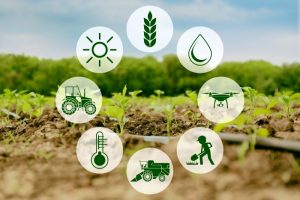

THE United Nations Food and Agriculture Organisation (FAO) says a regional agricultural policy it is implementing with SADC countries will boost livestock and crop producers’ access to markets through improvements in pest and animal disease management.
The project, called Support Towards the Operationalisation of the SADC Regional Agricultural Policy, is being implemented in the 16 SADC member states, including Zimbabwe.
“The objectives of the project are to enhance timely access to quality agricultural information for evidence-based decision-making and to improve access to markets through the sustainable management of trans-boundary plant pests and animal diseases that have the potential to impact food and nutrition security in southern Africa,” FAO’s manager for the project, Elma Zanamwe, said in a statement this week.

Although the SADC region has the potential to be food secure, its agriculture sector faces many challenges.
The project, which is now in its fourth year of implementation and will be ending in August this year, will result in the establishment of a SADC Agricultural Information Management System (AIMS).
AIMS will see the standardisation and harmonisation of agricultural data to ensure policymakers and agricultural value-chain actors have ready access to reliable information.
“It is hoped the platform will stimulate agricultural intensification, improve food and nutrition security, and promote regional integration, trade liberalisation and equitable economic growth,” Zanamwe said.
“The other components involve strengthening the management of trans-boundary pests and diseases to facilitate access to markets and the creation of trade opportunities for plant and animal commodities and products.
“This requires effective management of sanitary risks, accompanied by credible inspection and certification processes compliant with international standards, as well as competitiveness in quality, price and regularity of supply.”
The plant health component of the project is focusing on three insect plant pests ― the fall armyworm, oriental fruit fly and tomato leafminer ― and two plant diseases, maize lethal necrosis disease and banana fusarium wilt TR4.
The animal health component focuses on three high-impact trans-boundary animal diseases ― foot and mouth, peste des petits ruminants and highly pathogenic avian influenza (HPAI).
“While these priority pests and diseases remain important, the incursion of new threats such as outbreaks of African swine fever and the African migratory and red locusts have seen the priorities of some member states change with time,” Zanamwe said.
Although the SADC region has the potential to be food secure, its agriculture sector faces many challenges.
These range from inefficient production, productivity and competitiveness of agricultural products, limited access to reliable agricultural data and lack of appropriate policy and regulatory frameworks, some of which undermine compliance with sanitary requirements.
Member countries also have underdeveloped livestock value chains and related infrastructure, and continue to face changing agro-ecological conditions resulting in the emergence, spread and endemic presence of trade-sensitive pests and diseases.
“Managing high-impact trans-boundary plant pests and animal diseases is complex and can rapidly exhaust the capacities of individual member states for containment and eradication. Joint efforts by neighbouring member states are therefore necessary to effectively control the spread of pests and diseases along common borders and ports of entry.

“It is because of these challenges and opportunities that FAO, the SADC secretariat, and other development partners are committed to strengthening collaboration and the overall performance of the region’s agricultural sector,” Zanamwe said.
Zanamwe emphasised that the sustainability of the project will depend on the commitment and allocation of national resources by SADC governments, which will be crucial if accrued benefits are to continue being realised after the project ends.
This project is funded by the European Union.